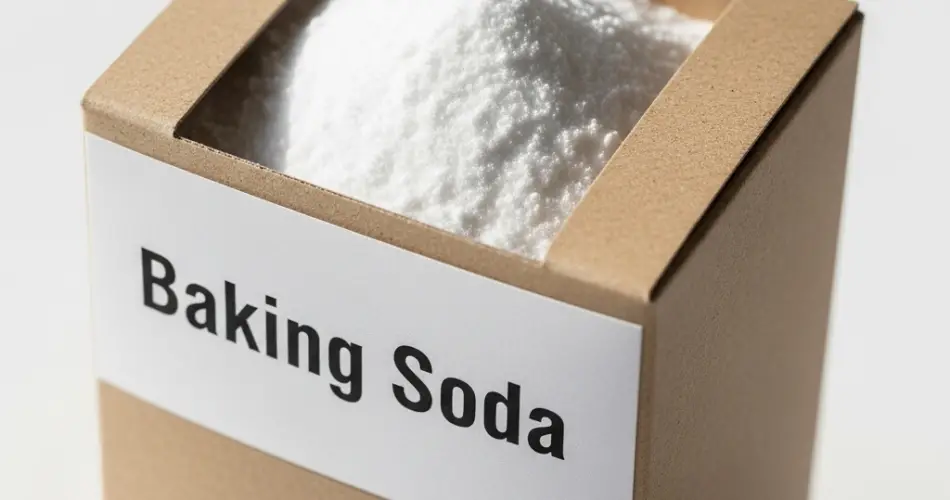If you’ve ever struggled with fungal diseases, pests, or general plant decline in your urban garden or houseplants, you’re not alone. Many gardeners face the challenge of keeping plants healthy, especially when dealing with common problems like powdery mildew, fungal infections, or pest infestations. Fortunately, there’s a simple, affordable, and natural solution that can save your plants — baking soda.
Yes, baking soda (sodium bicarbonate) is not just a kitchen staple; it’s also a powerful ally for plant health. In this article, you’ll learn how baking soda can help protect your plants, how to prepare a safe and effective spray, and tips for using it to keep your garden thriving.
Why Baking Soda Works for Plants
Baking soda has natural antifungal and antimicrobial properties. It alters the pH on the leaf surface, creating an environment that is hostile to fungal spores and some pests. This makes it especially effective against powdery mildew, one of the most common and persistent fungal problems in gardens and indoor plants.
Moreover, baking soda is safe for most plants and doesn’t involve the harsh chemicals found in commercial fungicides, making it ideal for organic gardening and urban settings.
Common Problems Baking Soda Can Help With
-
Powdery Mildew: This fungal disease appears as a white, powdery coating on leaves and stems, which can stunt growth and reduce flowering and fruiting.
-
Fungal Infections: Baking soda can reduce the spread of fungal pathogens that attack leaves and stems.
-
Certain Pests: While not a direct pesticide, baking soda sprays can deter some soft-bodied insects by changing the leaf surface environment.
-
General Plant Health: By keeping fungal infections in check, plants can grow stronger and resist other stresses.
How to Make a Baking Soda Spray for Plants
Ingredients:
-
1 tablespoon baking soda
-
1 quart (4 cups) water
-
1 tablespoon mild liquid soap (like castile soap or dish soap without additives)
-
Optional: 1 tablespoon vegetable oil (to help the solution stick to leaves)
Instructions:
-
Mix the baking soda and water thoroughly in a spray bottle.
-
Add the liquid soap and vegetable oil, then shake well to combine.
-
Spray the solution evenly on the affected plants, covering both upper and lower leaf surfaces.
-
Apply in the early morning or late afternoon to avoid leaf burn from sun exposure.
-
Repeat every 7 to 10 days, or after heavy rain.
Tips for Using Baking Soda Safely on Your Plants
-
Test first: Always spray a small area first and wait 24 hours to check for any leaf damage or discoloration.
-
Avoid overuse: While baking soda is safe, excessive application may affect soil pH or plant health.
-
Use fresh mixture: Prepare the spray fresh each time; don’t store it for long periods.
-
Combine with good gardening practices: Baking soda spray works best when paired with good watering habits, proper airflow, and healthy soil.
Success Stories and Results
In my own urban garden, baking soda spray turned out to be a lifesaver. I noticed powdery mildew starting on my tomatoes and cucumbers, threatening to ruin the harvest. After the first application, the white powdery coating began to fade, and new leaves emerged clean and healthy. Other plants, like roses and geraniums, also responded well, showing fewer signs of fungal disease and stronger growth.
Not only did baking soda help control fungal issues, but it also reduced the need for expensive or chemical treatments, making gardening safer for my family and the environment.
Why Baking Soda Is a Sustainable Choice
-
Cost-effective: Baking soda is inexpensive and widely available.
-
Non-toxic: Safe for children, pets, and beneficial insects when used properly.
-
Environmentally friendly: Unlike chemical fungicides, baking soda doesn’t pollute soil or waterways.
-
Easy to use: Simple ingredients and preparation mean anyone can try it.
Other Uses of Baking Soda in Your Garden
Beyond fungal control, baking soda has other gardening uses such as:
-
Deodorizing soil: Baking soda can neutralize odors in compost or soil.
-
Cleaning garden tools: It removes rust and dirt effectively.
-
Pest deterrent: Sprinkling baking soda around plants can help repel some insects.
-
Soil pH adjustment: In small amounts, it can help raise soil alkalinity if needed.
Final Thoughts
Baking soda is a versatile and powerful tool for any gardener, especially those who prefer organic and natural solutions. It effectively manages fungal diseases, supports healthy plant growth, and helps you maintain a thriving urban garden or home plants without harsh chemicals.
Next time your plants face fungal threats or pests, remember that your kitchen pantry may hold the key to saving them. Give baking soda spray a try and enjoy healthier, more resilient plants with a simple, safe, and affordable solution.



